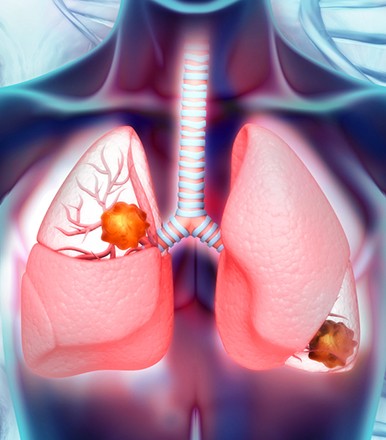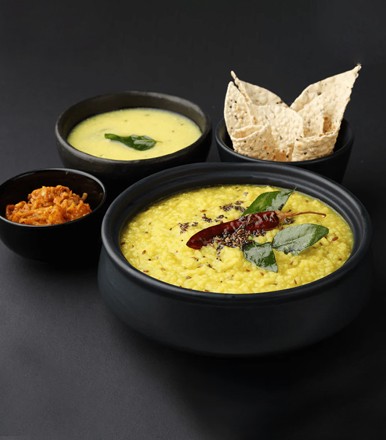Hair nourishment is an essential part of winter's routine and our ancestors did it the best way!!
As the chill of winter settles in, it demands changes in the daily routine. Changing habits and routines with changing weather is always our thing, our ancestors and the Ayurveda have always preached to us this adaptive nature. Winters come with many advantages for the body, especially the gut, but certain parts of the body see winters as a harsh season. Our Hairs aren’t big fans of this chilly weather as it brings with it a range of challenges for them.
In this piece of Nani ka Pitara, we’ll discuss the protection of our hair like the Indian way. From dryness and frizz to brittle strands and dandruff, winter’s impact on your hair can be harsh. Defending your tresses from cold air, whipping winds, static electricity and even indoor heat is necessary. But how? Well! Our ancestors got us covered.
The ancient traditions of hair care offer solutions that have stood the test of time. By incorporating essential oils, Ayurvedic herbs, and pre-wash routines into your regimen, you can protect and nourish your hair the natural way. Here’s a deep dive into how ancient practices can help you maintain luscious locks even in the harshest winter months. After all, you’ll want to have lovely locks to show off when spring (finally) comes!
Understanding Winter’s Effect on Hair
During the winter, the combination of cold air, low humidity, and indoor heating can wreak havoc on your hair. The cold, dry air strips moisture from your strands, leaving them dry, brittle, and prone to breakage. Indoor heating, while keeping us warm, further dries the air and zaps the moisture from both your hair and scalp. This can lead to scalp irritation, dandruff, and thinning hair.
Additionally, the lack of moisture in the air can cause your hair to become static, leading to frizz and flyaways. This is why winter is often considered a time when hair care requires extra attention.
. Oil Massages (Abhyanga)
One of the most prominent practices in ancient India for maintaining healthy hair in winter was the regular application of oil. Known as "Abhyanga" when done for the entire body, hair oiling specifically was a ritualistic and therapeutic act. Ayurvedic oils like Bhringraj oil, Amla oil, and Coconut oil were commonly used to nourish the scalp and prevent dryness, which was more prevalent in winter due to the cold, dry air.
These oils were massaged into the scalp and hair, stimulating blood circulation, and promoting hair growth. Coconut oil, in particular, was favored for its moisturizing properties and ability to protect hair from split ends and frizz. The practice of oiling not only helped in nourishing the hair but also kept the scalp hydrated, preventing dandruff and itching that could be aggravated in winter.
2. Herbal Masks and Pastes
Ancient Indians used various herbal masks to keep their hair strong and shiny. Ingredients like Henna (Lawsonia inermis), Amla (Indian gooseberry), Shikakai, and Reetha (soapnut) were commonly used. These ingredients are known for their conditioning properties, which helped reduce hair damage caused by winter dryness.
- Amla is rich in vitamin C and antioxidants, which help in promoting hair growth and preventing hair loss.
- Shikakai is known to be a natural cleanser and is also mild on the scalp, which is beneficial in cold weather when the scalp is more sensitive.
- Henna was traditionally used to strengthen the hair shaft, add shine, and combat the roughness that comes with colder temperatures.
These herbal mixtures were applied to the hair once or twice a week as nourishing hair masks.
3. Maintaining Hair Hydration
Winter weather tends to strip hair of its natural moisture, making it dry, brittle, and prone to damage. Ancient Indians were keenly aware of this and focused on keeping hair well-hydrated. In addition to oiling, they often drank warm herbal teas such as Tulsi (Holy Basil) or Chamomile, which were believed to promote overall well-being and support healthy hair.
Regular consumption of Ghee (clarified butter) was another dietary habit that contributed to the nourishment of hair and skin, especially in colder months, due to its rich, moisturizing properties.
4. Protective Covering for Hair
Ancient Indian women, particularly those from rural areas, would often cover their hair with scarves, shawls, or head wraps to protect their hair from the harsh elements. These coverings helped keep the scalp warm, avoiding exposure to cold winds that could cause dryness and hair breakage. This is still relevant today, especially in areas where winter winds can be damaging to the hair, as wearing a hat or scarf can protect against the elements.
5. Dietary Practices
In Ayurveda, diet plays a crucial role in maintaining healthy hair. During the winter months, warming and nourishing foods were encouraged to balance the body's natural energies, especially Vata, which tends to become aggravated in cold weather. Foods like ghee, sesame seeds, nuts, and warm soups were commonly consumed to strengthen hair from within.
Sesame oil was particularly valued for both internal and external use. The oil contains vitamins and minerals that help promote strong, shiny hair and prevent hair fall.
6. Avoiding Over-Washing
Ancient practices emphasized the importance of avoiding excessive washing of hair, especially in winter. Washing hair too frequently strips away natural oils, which are essential for maintaining moisture during the dry winter months. Hair was washed only when necessary, using natural shampoos made from ingredients like Reetha (soapnut) or Shikakai to cleanse the hair without stripping away its natural oils.
7. Scalp Stimulation
To improve circulation and prevent scalp dryness, people in ancient India often practised gentle scalp massage. Using fingertips, they massaged oils into the scalp, promoting blood flow, which is crucial for hair growth. Scalp massage with warm oil was not just about hair health but also a means to relax and reduce stress, which, in turn, helped prevent stress-induced hair fall.
8. Keeping Hair Trimmed
While trimming hair might seem a modern-day practice, the ancients also believed in keeping hair well-maintained. Cutting hair regularly helped prevent split ends, which were exacerbated by the dry winter air. Trimmed hair also looked healthier and more manageable, allowing natural oils to coat the hair more effectively.
Winter hair care need not be a daunting task. By embracing these ancient traditions you can nourish your hair and keep it healthy despite the challenges posed by the cold, dry season. The wisdom of the past offers timeless solutions that still hold relevance today, ensuring that your hair remains vibrant, strong, and beautiful all winter long. So, let nature’s finest gifts work their magic on your hair this winter—your locks will thank you for it!














